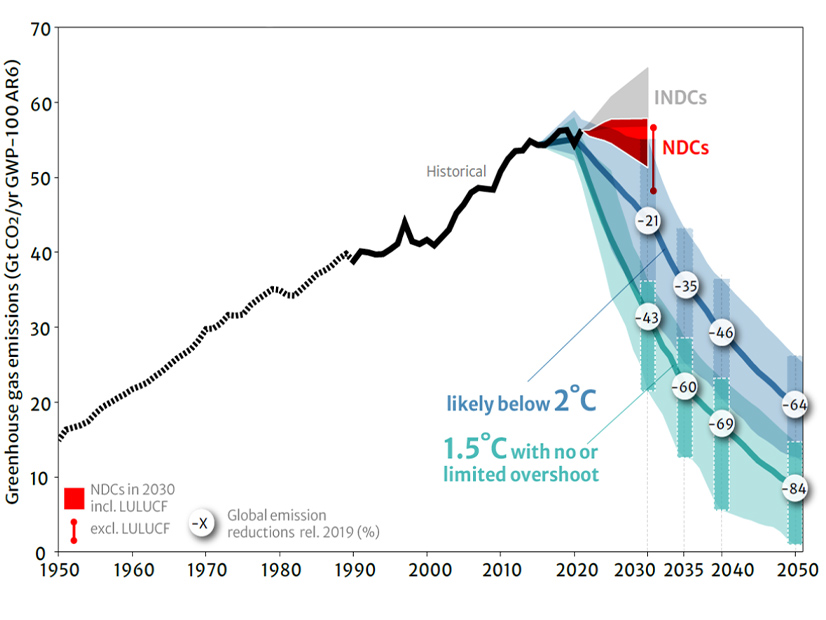While the Paris Agreement has led to some climate progress, the world is not on track to meet its goals, and deeper cuts to emissions need to start happening soon as midcentury approaches, the U.N. said in a report released last week.
The report — the first “global stocktake” by the U.N., released Sept. 8 — is meant to assess the global response to climate change and inform the discussions at the next Climate Change Conference, to be held beginning Nov. 30 in the United Arab Emirates.
“I urge governments to carefully study the findings of the report and ultimately understand what it means for them and the ambitious action they must take next,” U.N. Executive Secretary of Climate Change Simon Stiell said. “It’s the same for businesses, communities and other key stakeholders. While the catalytic role of the Paris Agreement and the multilateral process will remain vital in the coming years, the global stocktake is a critical moment for greater ambition and accelerating action.”
When the Paris Agreement was adopted in 2015 — with the goal of limiting the increase in the global average temperature to 1.5 degrees Celsius by 2050 — the forecasts suggested the temperature would rise by 3.2 C by the end of the century, World Resources Institute’s Jamal Srouji said on a web conference Wednesday. Forecasts dropped last year to 2.4 to 2.6 C, with the possibility of reaching 1.7 to 2.1 if countries’ net-zero-emissions targets are fully implemented.
“While progress has been made, the report makes clear that the world is not on track to meet the goals of the Paris Agreement and that much more action is needed now on all fronts,” Srouji said.
The report underscores that “system transformations” are needed to hit the midcentury goals, which would avoid some of the worst consequences of climate change but still require some adaptation measures. The last decade saw temperatures average 1.1 degrees Celsius higher than the pre-Industrial Revolution average, while concentrations of CO2 hit 410 parts per million in 2019 — a level higher than in the previous 2 million years.
Global emissions need to peak before 2050 to stay on track to keep warming at 1.5 C or lower. While the report said that needs to happen as soon as possible, peaking will take longer in developing countries than it will in the developed world.
In the energy industry, system transformation involves eliminating the use of unabated fossil fuels and scaling up renewable energy and other clean sources, the report said. Phasing out unabated fossil fuels will be a hotly contested topic at climate negotiations going forward, said Rachel Jetel, co-director of WRI’s Systems Change Lab.
“But without tackling the primary source of the problem — burning and, importantly, financing fossil fuels — we will not be able to solve the climate crisis,” she added.
Energy system mitigation measures could account for 74% of total global mitigation in reaching net-zero emissions, the report said.
Even the head of the International Energy Agency recently said new large-scale fossil fuel projects now carry not only climate risks, but also financial risks, Jetel said. Economics and the urgency around climate change are coming together, she said.
“In addition to transitioning away from fossil fuels, annual renewable energy capacity additions should more than triple by 2030,” Jetel added.
Renewable energy trends have been promising recently, with the unit costs for solar and batteries both falling by 85% from 2010 to 2019, while the cost of wind was down 65% over the same period. That has led to a significant increase in solar deployment, with growth rates of more than 10 times, and electric vehicles by 100 times.
Strengthening power grids and storage is critical to unlocking the potential of renewable energy sources and to providing clean power as transport, industry and buildings electrify, the report said.


